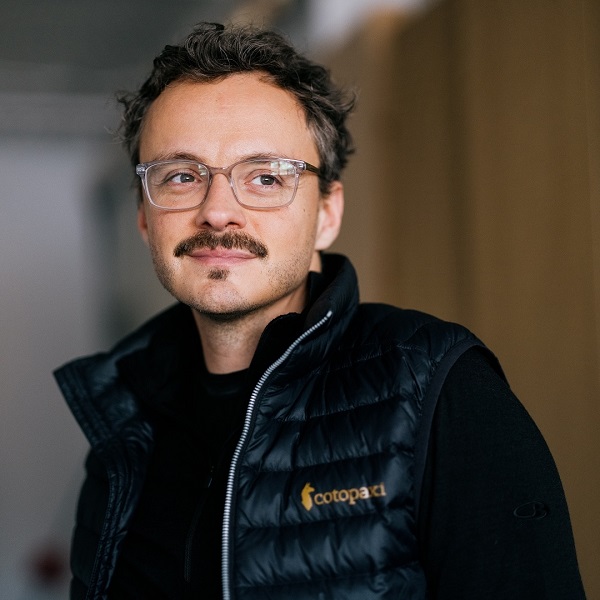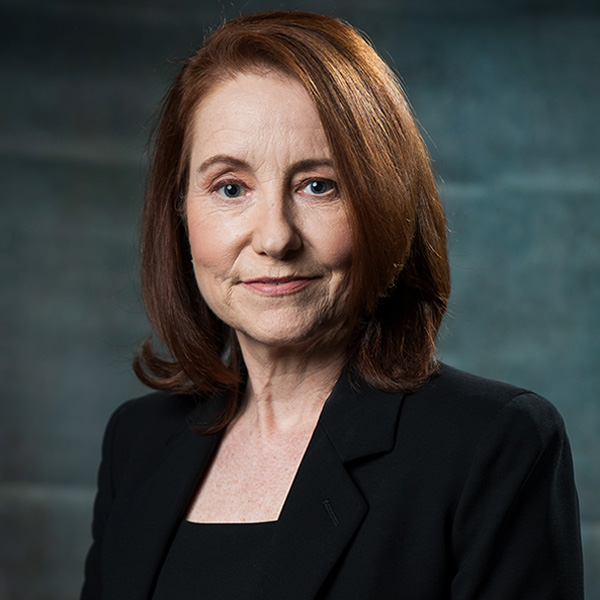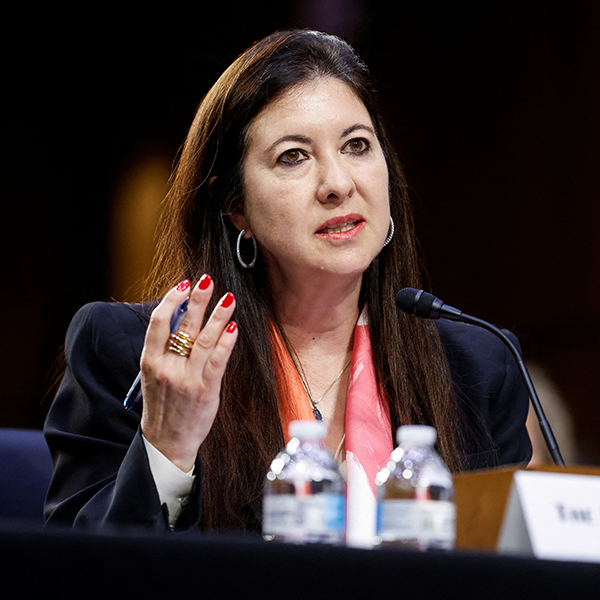When Aden Feustel walks across the stage to accept his undergraduate degree in neuroscience at this year’s spring convocation, his brother Ari (BA’17) and his mother Indira “Indi” Feustel, née Bhatnagar (BSc’88), will both be in the audience watching proudly.
But Aden’s father won’t be able to make it to the ceremony. He’ll be away on a business trip more than 400 kilometers away – straight up.
On March 21, NASA astronaut Andrew “Drew” Feustel journeyed into space aboard a Soyuz rocket launched from Baikonur Cosmodrome in Kazakhstan. He’ll be taking part in a six month mission aboard the International Space Station.
“I would love to be able to [watch Aden accept his degree via livestream],” said Drew in an email before the launch. “In fact, I would be honoured to do a shout-out from space to the graduating students – I am, after all, a dual U.S./Canadian citizen. I was at McGill for my older son’s graduation and I hope I can be there virtually this time as well. I am proud of their accomplishments and proud to be a McGill dad and spouse!”
Drew’s pride in his family is matched only by the admiration they have for him, a man who went from studying to be a car mechanic at community college, to earning a PhD in geological sciences, to being selected by NASA as an astronaut from a field of thousands of qualified candidates.
“It’s inspirational,” says eldest son, Ari. “I was watching some of my dad’s other launches [Feustel has flown on space shuttle missions in 2009 and 2011]. It still brings tears to my eyes and brings up a lot of emotions because it such an amazing thing to watch. It’s incredible to see what he’s accomplished.
“Growing up with dad and being surrounded by his colleagues – many of whom who are ex-military, or PhDs, doctors, super-accomplished people – has inspired me to join the military as a pilot,” says Ari, who traveled to Baikonur for the launch along with his brother and mother.
Aden echoes his older brother’s sentiments. “My parents are huge inspirations to me,” he says. “My dad inspires me to reach the highest point I can. My mom is a speech-language pathologist and she’s inspired me to go into medicine.”
For Ari and Aden, the ISS mission is different from the first two, when they were younger and still living at home in Clear Lake, a residential district of Houston. “I only have great memories of the first two launches,” says Aden. “We’d get together with the other crew members and their families every two weeks or so, so they became almost like our second family. We developed friendships that continue to this day.
“When we were in Clear Lake,” says Ari, “it was like everyone’s father was an astronaut or their parents worked at NASA. The training took place three blocks away, so we were very aware of what was going on.”
Both say the person who has probably been affected the most by their father’s otherworldly career path is their mother, Indi, who, on top of having her sons living in Montreal, has had to contend with her husband being away from home much of the time over the past two years.
“In the past two years, Drew has been away 65 per cent of the time training in Russia, Japan and Cologne,” says Indi. “The longest he has been away during this stretch was maybe five weeks. So, six months won’t be easy. But in the end, you get to see your loved one live his motto: ‘the sky is not the limit.’ That’s an incredible high.”
Drew will serve as a flight engineer during the first few months in space and then take over as commander of the ISS once the current crew departs in June. “The work that we do has been designed by principle investigators around the world and our primary task is to be the hands, eyes and ears of the investigators to ensure that the research in space is carried out per design.”
Indi remembers the moment Drew told her that he wanted to apply to NASA. He had secured a job at Exxon in Houston and the family had moved there from Ontario, where most of Indi’s family lived, for what she thought was going to be “a year or two.
“I remember distinctly that I had the two boys in my arms. We were on the couch in Houston and Drew got home and said ‘I’ve been thinking about it and I feel like I’m supposed to be doing something bigger. Something for the betterment of humankind,” says Indi. “We’ve been in Houston ever since.”
When Drew talks about the importance of space exploration, that passion comes through, even via email. “I believe that the single most important reason [to explore space] is that single-planet species have a finite life span,” he writes. “Aside from that critical point, space exploration will allow us to benefit from the resources of the space around us. Not only in terms of natural resources that can be found on other orbital bodies, but also in the research that can be performed in space that benefits us here on earth – most notable is medical and human health research.”
His favourite activity is space walking, which he describes “like a dream. There is no greater feeling of intense vulnerability and mystical beauty than what you see and feel when you are floating above Earth between humanity and the great unknown.”
The space walks stir a range of emotions for Indi. “You get to watch them live, so there’s the anticipation and exhilaration as they suit up. Then they go out and there is trepidation; you pray that there’s not going to be any debris and that nothing goes wrong. But when they say something about how beautiful the Earth looks or how they can see Hawaii, you feel the joy and wonder,” she says. “And then, in the end, when they’re finally back inside, it’s just abject relief.”
The launches can also be stressful for an astronaut’s family. “The toughest part is the emotional challenge of watching millions of tons of rocket fuel ignite underneath my dad to carry him into space,” says Aden. “I think half the emotions whenever I watch a launch is fear. But it’s also so powerful and so inspiring. It’s a strange combination.”
While Drew is aboard the ISS, the family will be able to videoconference for an hour every week. On top of that, Drew can call his wife and sons during downtime, thanks to a cellphone app similar to Skype or Facetime. “Hopefully we’ll pick up when he calls,” laughs Aden.
Speaking to the Feustels, it is clear that the ISS mission is a family undertaking. “I would not be here if not for my wife and family,” says Drew.
For Indi, there is no doubt about how Drew will perform. “He’s going to shine,” she says. “He is Mr. Fix It. There is always someone from NASA in our driveway. ‘Drew, can you fix this? What can we do about that?’
“He’ll be in his element and he’ll be doing what he loves: fixing things and, most importantly, fixing things in space.”


